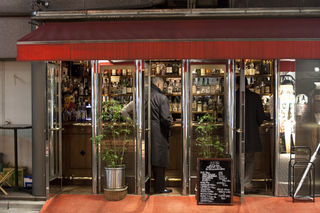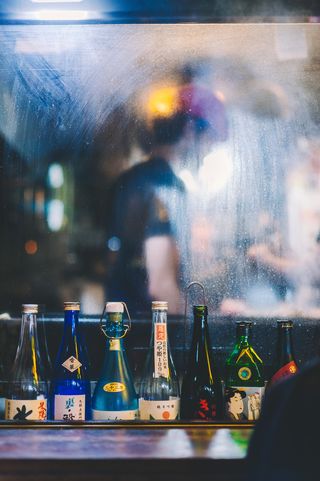Alcoholism
Japanese Alcohol Culture
Alcohol consumption has dropped in most industrialized countries—but not Japan.
Posted May 8, 2019 Reviewed by Ekua Hagan

In Japan, there is no societal acknowledgment of alcoholism. For much of Japanese society, addiction to alcohol doesn't exist. In fact, binge drinking to the point of blacking out has been normalized. You can buy shots of alcohol from vending machines. Just as there are stand-up noodle shops (i.e., there are no seats for sitting), there are similar stand-up bars to service many white-collar workers who have limited outlets to cope with the stressors of life.
In addition, like many collectivist Asian cultures where emotional restraint is honored, getting drunk is considered a socially acceptable means of therapy. “Alcohol here plays the role of psychiatry in the West,” says Charles Pomeroy, former president of the Foreign Correspondents Club of Japan and a Tokyo resident for 45 years. “I think the country would explode without it.”

Although alcohol consumption is now decreasing in most industrialized countries, it has quadrupled in Japan since 1960, according to a study by the Leisure Development Research Centre in Tokyo. Dr. Hiorakai Kono, the former director of the National Institute of Alcoholism in Tokyo knew problem drinking has been a long-standing issue but even he is shocked, “What astonishes us is the size of the problem.” The study finds that 60% of problematic drinking impacts Japanese businessmen who claim that getting drunk with clients or coworkers is part of their job and a mark of company loyalty, and that if they were to refuse a drink from their boss it could have damaging career repercussions.
To show the pervasiveness of this issue, photographer Pawel Jaszczuk released a book, High Fashion (2018), which shows, in picture after picture, well-dressed Japanese businessmen sleeping in the middle of the city. Jaszczuk, a Warsaw-born, Tokyo-based photographer says that his eye was attracted by the sleeping salarymen on purely aesthetic grounds. “The contrast between these well-dressed men and the street grabbed my attention, and the message came later.”
But men aren't the only ones drinking to excess. Many educated, white-collar women are also following men's lead. While less common to find women passed out on public sidewalks or subways, it's very typical to see them passed out at company parties and/or blacking out when they return home.
In recent years, a public service announcement was launched to address this issue. Ironically backed by a popular nightclub chain in Tokyo, the ads from Ogilvy & Mather, Japan, carry the hashtag #nomisugi, which translates roughly to, “too drunk." One of the video ads states that on a typical weekend, "there are thousands of people sleeping on the streets” by sunrise.
The anti-drinking campaign isn't meant to stop drinking but to get Japanese men and women to stop drinking to excess. Part of the problem may be the country's shame of seeing images of its hardworking citizens being documented in magazines and other online forums. Time will tell if shame can offset what's now a typical means to cope with a high-pressure work culture.
References
Sam also speaks on Asian cultural issues. For more information go to his speaking website at www.SamLouieSpeaks.com


